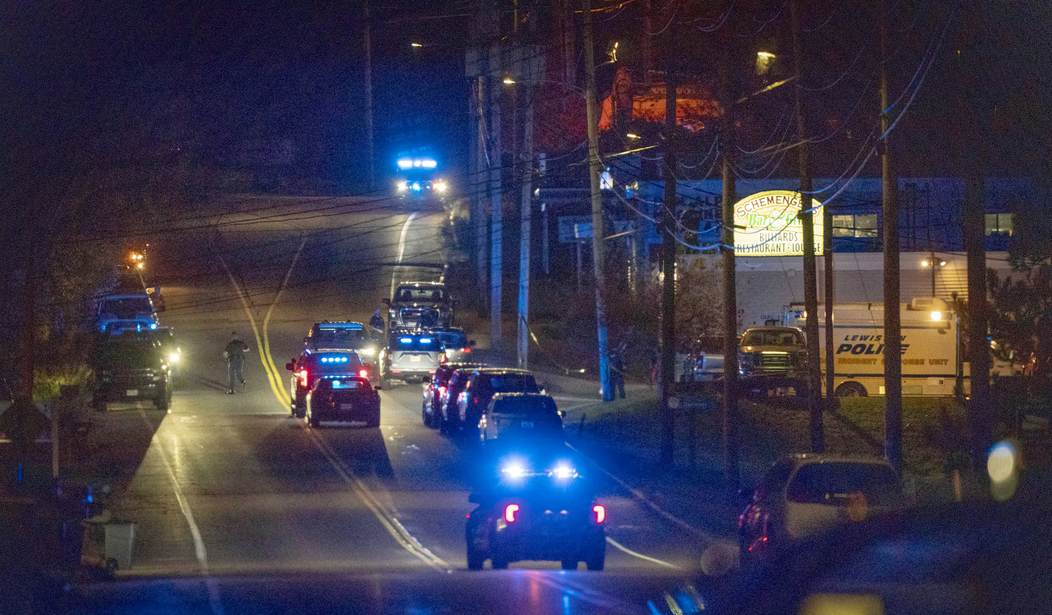In his softball sitdown with CBS News that ran on Sunday morning, ATF Director Steve Dettelbach did make one somewhat surprising admission; telling Margaret Brennan that his recent closed-door meeting with survivors and family members of those killed in the Lewiston, Maine shootings last October included several folks who don't believe that gun control is the answer going forward.
I sat in a room in Lewiston, Maine, last week with families and survivors of the mass shooting that happened in Lewiston a couple of months ago. And there were people in that room, first of all, tremendous grief, unspeakable frustration and anger. There were people in that room who had really different views on these sort of policy questions, right. Everything from how can somebody get a weapon like this in this country, to- to, you know, the solution is not the weapons, and we're not teaching respect, you know, among our young people, but- but I really value my weapons in the same room, weeks after they've lost a brother or a father or been shot themselves, right. Those people were able to sit in that room with all that grief and have a discussion.
I doubt that Dettelbach's exposure to those folks is going to result in a change of heart when it comes to his support for more gun laws, but it's a little refreshing to see him willing to acknowledge that not everyone who survives a violent crime or loses someone close to them automatically supports more restrictions on the right to keep and bear arms, which is more than most gun control groups and the mainstream media are willing to do.
Some of the same folks who recently sat down with Dettelbach were testifying in Bangor today, where a commission investigating the shooting heard from eyewitnesses and family members of the victims. Once again, this time in a much more public setting, several of them expressed frustration over a gun control response from the legislature when they say the issue is really about mental health and access to care.
Ben Dyer wasn’t supposed to be at Schemengees Bar & Grille the night of October 25, but he went to play cornhole after the restaurant’s manager called to ask him to fill in for someone who couldn’t make it for a game.
Dyer was shot five times that night by Robert Card, who killed 18 people and injured 13 others at Schemengees and another Lewiston business, Just-in-Time Recreation.
He survived, but told members of the state commission investigating the mass shooting on Monday that the physical and emotional toll of the shooting is still with him, and that he wishes more could have been done to prevent it.
“We can talk about lots of things, but the biggest thing is the mental health (concerns) were there,” Dyer told the commission, referring to warning signs that Card was paranoid and threatening violence. “People knew this was going to happen, and nobody stopped it.
Even after the killer spent weeks in a New York hospital because of his mental health issues, once he was released it quickly became apparent to family and friends that he was deeply troubled. Still, despite calls to law enforcement and chatter between police in Maine and Army officials, there were no attempts to use the state's involuntary commitment law or even its "yellow flag" statute, which would have also caused him to undergo a mental health evaluation by licensed healthcare workers.
“I understand that Maine has a problem with mental health,” said Bobbi Nichols, who was at Just-in-Time the night of the shooting and lost her sister, Tricia Asselin. “Every state has a problem with it. There are not enough resources or counselors. And all these gun laws — the bottom line is you can pass 1,000 gun laws but if you don’t follow the protocol, why have them? This guy didn’t just show one or two episodes, this was a constant thing.”
As Nichols says, there were multiple chances to prevent this attack, but the government repeatedly failed to act appropriately. Sportsmans Alliance of Maine executive director David Trahan has an excellent, if infuriating, catalog of those missed opportunities that should be required reading for every legislator in Maine before they vote on any new gun control measures, but as he notes, gun control activists and anti-gun lawmakers have seized on the tragedy to implement an agenda that wouldn't have stopped the killer from carrying out his attack but would choke off the Second Amendment rights of Mainers.
Meanwhile, those same folks are only paying lip service to Maine's mental health care shortage, which is now impacting those like Nichols, who told the commission that the counselor she's been talking to over the past couple of months doesn't have the kind of training in dealing with trauma that she needs.
One of the few proposals that's received bipartisan support in Maine this session is Gov. Janet Mills' idea to create a network of crisis receiving centers, which she says would ensure that "any person suffering a mental health crisis can get prompt and appropriate care." Not only has her suggestion earned praise from both sides of the aisle, it's a direct response to one of the government failures that led to the killings in the small town last fall; unlike the 72-hour waiting period, ban on so-called assault weapons, and "universal" background checks that have been proposed by Democrats in the House and Senate.
There is a deep divide in Maine on the utility and constitutionality of those proposals, but there's pretty broad agreement that the state's mental health system is in dire need of repair; fixes that would not only help to identify and treat the next would-be killer with murderous impulses and strange voices in their head, but could help reduce the state's sky-high number of overdose and alcohol deaths along with suicide. Lawmakers have the opportunity to do the right thing, not just some thing, and if they've learned any lessons from the horrors of that October night in Lewiston it's time to buck the demands of groups like Giffords and Everytown and address the underlying failures of government that led directly to the shootings.









Join the conversation as a VIP Member